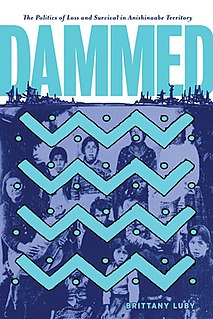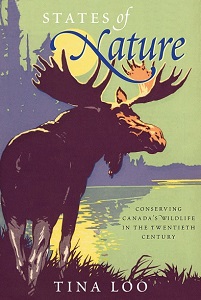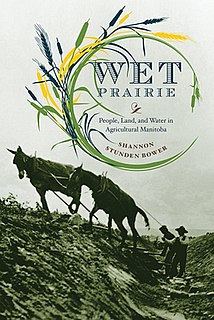Related Research Articles

The University of Victoria is a public research university located in the municipalities of Oak Bay and Saanich, British Columbia, Canada. The university traces its roots to Victoria College, the first post-secondary institution established in the province of British Columbia in 1903. It was reincorporated as the University of Victoria in 1963.

The University of British Columbia (UBC) is a public research university with campuses near Vancouver and in Kelowna, British Columbia. Established in 1908, UBC is British Columbia's oldest university. The university ranks among the top three universities in Canada. With an annual research budget of $759 million, UBC funds over 8,000 projects a year.

Ian MacDougall Hacking is a Canadian philosopher specializing in the philosophy of science. Throughout his career, he has won numerous awards, such as the Killam Prize for the Humanities and the Balzan Prize, and been a member of many prestigious groups, including the Order of Canada, the Royal Society of Canada and the British Academy.

Dammed: The Politics of Loss and Survival in Anishinaabe Territory is a 2020 book by Brittany Luby, Associate Professor of History at the University of Guelph. The book charts the impacts of the damming of the Winnipeg River in the Lake of the Woods region on the local Anishinaabe population, focusing in particular on the Dalles 38C reserve located downstream from Kenora, Ontario.
The Canadian Historical Association is a Canadian organization founded in 1922 for the purposes of promoting historical research and scholarship. It is a bilingual, not-for-profit, charitable organization, the largest of its kind in Canada. According to the Association, it "seeks to encourage the integration of historical knowledge and perspectives in both the scholarly and public spheres, to ensure the accessibility of historical resources, and to defend the rights and freedoms of emerging and professional historians in the pursuit of historical inquiry as well as those of history degree holders who utilize the analytical, research, communication, and writing skills they acquired during their studies to pursue a variety of career paths inside or outside of academia."
The University of British Columbia (UBC) is a Canadian public research university with campuses in Vancouver and Kelowna, British Columbia. The following is a list of faculties and schools at UBC.
Doug Owram is Professor of History and was Deputy Vice-Chancellor of the University of British Columbia Okanagan from 2006 to 2012, a post he assumed on July 1, 2006. He was formerly Vice President (Academic) and Provost at the University of Alberta.
Veronica Jane Strong-Boag is a Canadian historian specializing in the history of women and children in Canada. She is a Professor Emerita at the University of British Columbia, where she was Professor of Women's History and the founding Director of the Centre for Women’s and Gender Studies.
Sandra Djwa is a Canadian writer, critic and cultural biographer. Originally from Newfoundland, she moved to British Columbia where she obtained her PhD from the University of British Columbia in 1968. In 1999, she was honored to deliver the Garnett Sedgewick Memorial Lecture in honor of the department's 80th anniversary. She taught Canadian literature in the English department at Simon Fraser University from 1968 to 2005 when she retired as J.S. Woodsworth Resident Scholar, Humanities. She was part of a seventies movement to establish the study of Canadian literature and, in 1973, cofounded the Association for Canadian and Québec Literatures (ACQL). She was Chair of the inaugural meeting of ACQL. She initiated textual studies of the poems of E. J. Pratt in the eighties, was editor of Poetry, "Letters in Canada" for the University of Toronto Quarterly (1980-4), and Chair of Canadian Heads and Chairs of English (1989).

Royden Loewen is a retired Canadian History Professor and Chair in Mennonite Studies at the University of Winnipeg. As a prominent historian in the field of Mennonite history, his book about the Mennonite Communities 1850-1930 is a leading publication about the emigration waves from south Russia to Canada.
Margery Fee is a professor emeritus of English at the University of British Columbia (UBC). From 2015 to 2017, Fee was the Brenda and David McLean Chair In Canadian Studies at UBC. She publishes in the fields of Canadian, postcolonial and Indigenous studies and Canadian English usage and lexicography.
Ann Dale is a researcher, public advocate and environmental policy analyst. She is known for her research on community sustainability.
Caroline Cole Ford is an American historian. She is a Professor and Peter Reill Endowed Chair in European History at the University of California, Los Angeles.
Walter D. Young was a Canadian political scientist who has written several books that are considered the definitive resources for the Co-operative Commonwealth Federation and the New Democratic Party. His experiences as a democratic socialist in Canada led to his involvement in the founding of the NDP, provincial politics in British Columbia, and a variety of educational initiatives at The University of British Columbia and The University of Victoria.
Joy Parr is a Canadian historian. Parr is a Professor at the University of Western Ontario and holds a Tier 1 Canada Research Chair in Technology, Culture and Risk. She is known for her work in the fields of labour and gender history as well as the history of technology.

Sensing Changes: Technologies, Environments, and the Everyday, 1953–2003 is a 2010 book by Canadian historian Joy Parr. The book examines the "embodied histories" of Canadians who were affected by Canadian megaprojects in the postwar period, assessing how such developments, which significantly altered local environments, affected people's senses of place and identity through their sensory experiences. The book features cases studies such as the damming of the Arrow Lakes in British Columbia, the relocation of the village of Iroquois as part of the Saint Lawrence Seaway project, and the construction of a NATO base in rural New Brunswick. The book also explores the E. coli outbreak that occurred in Walkerton, Ontario in 2000. Beyond just documenting the changes brought about by such developments, which were significant in remaking entire landscapes, Parr argues that these periods of sudden changes for local residents reveal important insights into embodied knowledge, or the ways in which we come to know our surroundings through sensory engagement. The book effectively demonstrates that "[t]he human body... becomes the fundamental archive of historical experience that is researchable through written and oral accounts of lived experience."

States of Nature: Conserving Canada's Wildlife in the Twentieth Century is a 2006 book by Canadian historian Tina Loo. The book analyzes the history of nature conservation in Canada throughout the 20th century, paying particular attention to the contributions of and interactions between both state and private actors, effectively tracing "shifting and conflicting attitudes toward the natural world" and the "roles of the state, urban sportsmen, and rural peoples, from resource workers to First Nations." Loo argues that over the course of the century wildlife conservation came increasingly under the purview of the state, yet had firm roots in informal, localized practices. She highlights this expanding bureaucratic and scientific state presence as being part of a larger process of "rural colonization," but also shows how private groups and individuals continued to play an important role in adapting and implementing conservation practices. Ultimately, Loo argues that wildlife conservation was shaped by, and ultimately shaped in turn, Canadians' values about their relationship with the natural world.
Sarah Carter is a Canadian historian. She is Professor and the Henry Marshall Tory Chair at the University of Alberta in both the Department of History and Classics and the Faculty of Native Studies with noted specialties in Indigenous and women's history.

Wet Prairie: People, Land, and Water in Agricultural Manitoba is a 2011 book by Canadian historian Shannon Stunden Bower. The book examines the history of settlement and farming in the unique landscape of southern Manitoba, notable for its poor drainage and thus high levels of moisture that contrast with the aridity of much of the Great Plains. Stunden Bower uses this unique context to focus on the development of liberalism on the Prairies, from the late nineteenth into the twentieth centuries, highlighting tensions between private property and state intervention and between agricultural development and wetland conservation. The book uses the term "colloquial liberalisms" to describe how variable landscapes shaped local interpretations of liberalism, highlighting the ways in which ideologies interact with the environment. In this case, drainage needs and policy created "differing understandings of the appropriate interplay of individual land rights with government tax or environmental policies." Wet Prairie ultimately demonstrates "that Canada’s political history cannot fully be understood without paying attention to the environment."
Shirley Tillotson is a Canadian historian, who studies the relationship between Canadians and the Canadian state, in the 20th century, and has published widely on the history of taxation in Canada. She is currently a professor emeritus at University of King's College. Her published work has won several awards, including the Governor General's History Award for Scholarly Research, François-Xavier Garneau Medal, and the Canadian Historical Association, Clio (Ontario) Award for Excellence.
References
- ↑ "The Annual Creighton Lecture - "Moved by the State: Forced Relocation and a Good Life in Postwar Canada" | JHI". humanities.utoronto.ca. Retrieved 2020-07-21.
- 1 2 "Tina Loo". Department of History. Retrieved 2020-07-21.
- 1 2 3 Canada, Employment and Social Development (2003-11-07). "PRIME MINISTER ANNOUNCES ADVISORY COMMITTEE FOR THE NEW CANADA HISTORY CENTRE". gcnws. Retrieved 2020-07-21.
- 1 2 "Tina Loo". Osgoode Society for Canadian Legal History. Retrieved 2020-07-21.
- 1 2 3 "CHA Prizes". cha-shc.ca. Retrieved 2020-07-21.
- ↑ "Archives: Canada Prizes". Federation for the Humanities and Social Sciences. 2012-05-07. Retrieved 2020-07-21.
- ↑ "UBC Faculty Named 2016 Fellows of the Royal Society of Canada | UBC Research + Innovation". research.ubc.ca. Retrieved 2020-07-21.